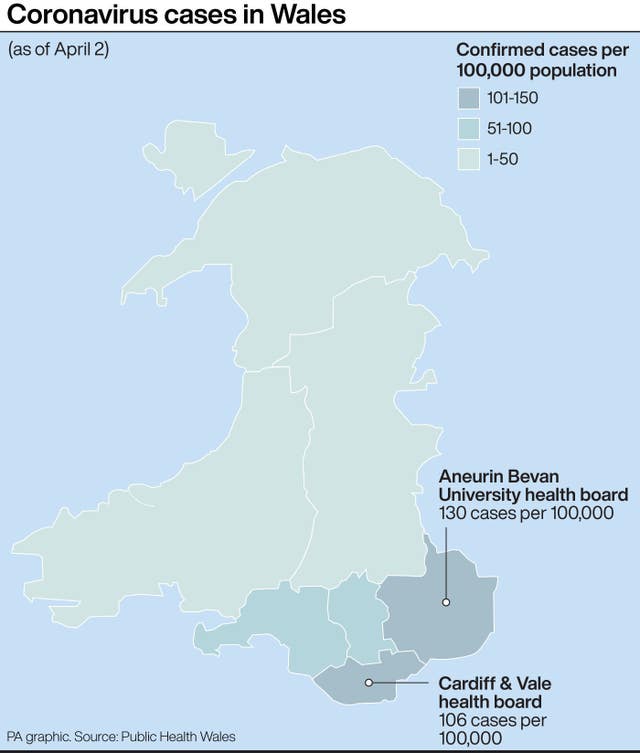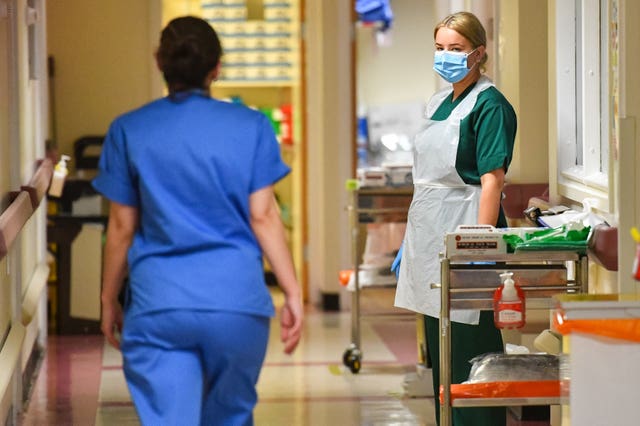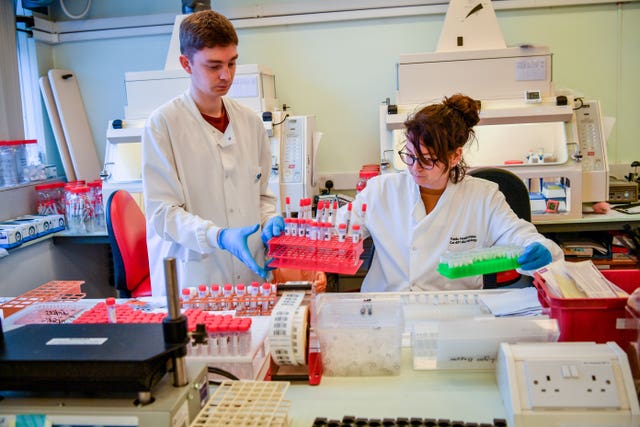More than 6,000 additional beds to be created in Welsh field hospitals
A total of 117 people who had tested positive for Covid-19 have died in Wales.

More than 6,000 additional beds will be created by field hospitals erected in leisure centres and stadiums across Wales.
Dr Andrew Goodall, the chief executive of NHS Wales, told a press conference in Cardiff that he expected “significant” pressure on the health system from coronavirus.
Two thousand beds will be available at the Principality Stadium in Cardiff, with more than 350 at the Parc y Scarlets in Llanelli and a similar number at Venue Cymru in Llandudno.

A further 284 new cases have tested positive for Covid-19, meaning there are now 2,121 confirmed cases in the nation, although the true number of cases is likely to be higher.
The cases by health board area are: 766 in Aneurin Bevan; 117 in Betsi Cadwaladr; 528 in Cardiff and Vale; 242 in Cwm Taf; 134 in Hywel Dda; 34 in Powys and 248 in Swansea Bay.
A total of 17 cases are resident outside of Wales, while the locations of 35 are yet to be confirmed.
Dr Goodall said there were 573 patients confirmed as having Covid-19, and a further 399 suspected virus cases, being treated in hospitals in Wales.
Critical care capacity across Wales has been increased to 331 beds, with around 55% of these currently unoccupied.
Speaking about the field hospital plans, he told the press conference: “We expect the pressure on our health care system to be significant.
“We’ve never taken such actions before and they are a necessary response to ensure that we care for our patients and for our communities.”
He described the situation as “extraordinary times” for the NHS and praised staff for their “fantastic” response.
“Clearly, these are exceptional, extraordinary circumstances that we’re going through and for all of us who work in the NHS context we will never have experienced this kind of environment,” Dr Goodall said.
Private hospitals in Wales have agreed to provide 152 additional beds, as well as facilities including operating theatres and diagnostic support.
Dr Goodall said he had written to all health boards on Thursday, telling them to “continue to prioritise cancer treatment”.

The Welsh Government had planned for 5,000 coronavirus tests per day to be carried out from April 1 but the figure will only reach 1,100 by the end of this week following the collapse of a deal with a testing company.
Mark Drakeford, the first minister of Wales, named the company involved as Swiss pharmaceutical giant Roche during a virtual sitting of the Welsh Assembly on Wednesday.
But Roche denied ever having “contract or agreement directly with Wales” to supply tests.
Dr Goodall said 1,500 NHS staff members had been tested across the nation to date but the numbers were increasing, with around 200 healthcare workers per day currently being tested.

“Just yesterday we were close to 1,000 tests actually being processed and you will continue to see those numbers actually rising in Wales, but important to say that whatever opportunities we have, we continue to explore them to expand the testing,” Dr Goodall added.
Guidance on personal protective equipment (PPE) for health and social care workers was updated on Thursday following a rapid review in the UK.
All health and social care staff within two metres of a suspected or confirmed Covid-19 patient should now wear an apron, gloves, fluid repellent surgical mask and eye protection.
The new guidance also says that while gloves and aprons should be disposed of after a single use, masks and eye protection can be used for a session of work.
Health minister Vaughan Gething said: “This new guidance goes beyond what is required by the World Health Organisation and provides extra reassurance to frontline staff, recognising their concerns and fears.”
Over the past few weeks, more than five million items of PPE have been distributed to the healthcare sector in Wales including GP practices, pharmacies and to social care workers.
Helen Whyley, director of the Royal College of Nursing Wales, said the union was “pleased” the updated guidance had finally been published.
“Our members have been asking for this ever since Covid-19 was declared a pandemic so this has been a long time coming,” she said.





